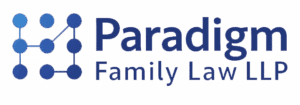
Digital Assets and Divorce: Managing Virtual Property in Family Law
In the digital age, our lives are increasingly intertwined with virtual platforms and online assets. As technology continues to evolve, the legal aspects of digital assets have become a significant consideration in divorce proceedings. This blog post will delve into the complexities of managing digital asset including online account cryptocurrency, and intellectual property, and how these assets are treated in divorce settlements.
Understanding Digital Assets
Digital assets encompass a wide range of virtual propertie including but not limited to:
- Online Accounts: Social media profile email account and other online platforms may contain significant personal and sometimes financial information.
- Cryptocurrency: With the rise of cryptocurrencies like Bitcoin, spouses may have digital assets in the form of cryptocurrency holding which can be subject to division during divorce.
- Intellectual Property: Digital assets can also include intellectual property such as blog website digital art, and other creations that hold value.
Treatment of Digital Assets in Divorce
- Inventory and Valuation: The first step in managing digital assets during divorce is to create an inventory. This includes listing all relevant online account specifying cryptocurrency holding and identifying intellectual property. Valuing these assets can be complex and may require the assistance of experts in digital forensic appraiser or financial professionals.
- Division of Online Accounts: Social media account email account and other online profiles may contain personal or even financial information. Deciding how to handle these account including changing passwords or establishing access right is crucial in safeguarding both parties’ interests.
- Cryptocurrency Division: Cryptocurrency is treated as property in divorce cases. Courts will require spouses to disclose all cryptocurrency holdings and may divide them as part of the marital estate. Due to the volatile nature of cryptocurrency, obtaining a professional valuation is essential, as is regularly updating the valuation throughout the divorce.
- Intellectual Property Considerations: Intellectual property, such as blog website or digital art, may have monetary value. Determining ownership and the fair market value of these assets is critical for a fair distribution. In some case spouses may continue to share ownership or agree on a buyout arrangement.
- Prenuptial and Postnuptial Agreements: Including provisions related to digital assets in prenuptial or postnuptial agreements can provide clarity and guide the division process. These agreements can specify how digital assets are treated in the event of a divorce.
- Protecting Personal Information: In cases involving shared online accounts or password protecting personal information is paramount. Both parties should change passwords and update security settings to prevent unauthorized access and potential misuse of sensitive data.
- Seeking Legal Guidance: Given the complexity of digital asset division, seeking legal guidance is crucial. Experienced Family lawyer used to dealing with digital assets can provide advice on the specific issues and help navigate the intricacies of these unique properties.
Conclusion
As our lives become increasingly digital, the management of virtual assets in divorce has become an integral aspect of family law. From online accounts to cryptocurrency and intellectual property, understanding the legal implications and seeking professional guidance ensures a fair and equitable resolution. By addressing these digital assets thoughtfully, divorcing couples can pave the way for a smoother separation while protecting their financial interests in the digital realm.
Contact
Paradigm Family Law have a team of experienced and highly recommended divorce lawyers to help guide you through the process of divorce, just waiting to hear from you.
If you would like more details on this or want to discuss your family law matter, please do not hesitate to contact Frank or Evelyn. Paradigm Family Law offers a free initial consultation with a top rated divorce lawyer and our fixed fee solutions cover financial proceedings from start to finish. You can call us on 01904 217225 or email us to info@paradigmfamilylaw.co.uk.

